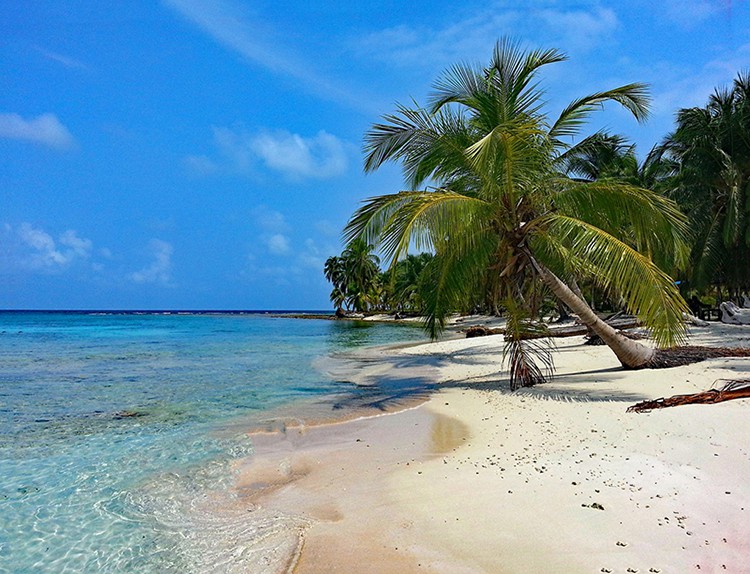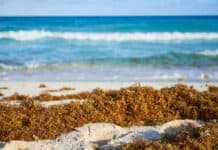 As Coronavirus COVID-19 continues to spread throughout the world, the Caribbean is taking aggressive action and putting policies into place in an effort to help control its spread. Following are current restrictions, but please remember, the situation is fluid, as are both potential and existing policies.
As Coronavirus COVID-19 continues to spread throughout the world, the Caribbean is taking aggressive action and putting policies into place in an effort to help control its spread. Following are current restrictions, but please remember, the situation is fluid, as are both potential and existing policies.
Antigua and Barbuda
On March 13, 2020, Antigua and Barbuda reported its first confirmed case of Coronavirus COVID-19. Travel advisories were issued denying entry to any foreign national who has travelled to China, Italy, Iran, Japan, Korea and Singapore the past 28 days. However, citizens of Antigua and Barbuda as well as resident diplomats will be allowed entry.
Aruba
Aruba has launched a series of aggressive measures to contain and prevent the spread of the Coronavirus COVID-19. The island has officially restricted all non-residents of Aruba from entering the island.
Bahamas
On March 16, the Bahamas reported its first case of COVID-19 in Nassau and the islands have now implemented new border control and quarantine measures for persons traveling from highly-infected areas. Foreign nationals and foreign individuals who have travelled within the last 20 days from the UK, Ireland, and Europe will be prohibited entry into The Bahamas, in addition to restrictions already in place for China, Iran, Italy, and South Korea. This restricted travel list of countries will be continuously monitored and updated as necessary.
Traveler health questionnaires and a screening protocol are being used at ports, hotels, and rental properties to identify persons who may require surveillance or treatment. In addition, all Bahamian nationals and residents returning to The Bahamas through any point of entry from any of the restricted countries or an area where community infection and spread is present will be quarantined or be placed under self-isolation upon arrival and are expected to follow the protocols of the Ministry of Health.
Belize
At press time, there were no confirmed COVID-19 cases in Belize, and the Belize government is taking no chances, and has banned entry for all individuals who have traveled to China, Hong Kong, Iran, Japan, South Korea, the UK, and Europe within the last 30 days.
In addition, all Belizean nationals and residents returning to Belize from a country where community spread of the virus is present will be placed under self-isolation upon arrival into the country. All ports of entry to Belize except for cargo vessels have also been closed, with only the Santa Elena border and the Philip Goldson International Airport open. As a precautionary measure, the government has urged people to defer all non-essential travel out of the country. Plus, indoor and outdoor gatherings will be limited to 100 people. But please expect changes to these policies in this highly fluid environment.
Cayman Islands
The island has so far seen only one case of the virus on its shores but has taken immediate steps to slow any possible spread of COVID-19 in an effort to minimize potential risk to its economy.
As of March 22, in an attempt to stem the spread of COVID-19, Cayman’s authority has shut down air travel in and out of the island for the next three weeks.
All passenger air traffic, including private aircraft, ceased on Sunday, March 22, when the islands will essentially be on lockdown. Inter-island travel will also be restricted to essential movement only. This new emergency measure follows a 60-day ban on cruise ship arrivals announced last Friday.
Costa Rica
As of March 21, Costa Rica has 117 confirmed cases of COVID-19. After declaring a state of emergency, all borders are now closed to foreigners. The closure is in force until April 12 and could be prolonged. Only Costa Ricans and foreigners with a residence may enter; however, they must formally commit to 14 days in solitary confinement in their homes. Costa Ricans are also called upon to avoid nonessential travel.
Dominican Republic
The Dominican Republic has declared of a state of emergency as confirmed cases of COVID-19 has more than doubled on Friday, March 20, jumping to 72 infections.
The Dominican Republic has shut its borders by land, sea, and air. In addition, the government has banned all local and international cultural, artistic, and sports events and has closed all entertainment venues such as bars and clubs and other similar establishments. The only exception to the sweeping measure are for the departure of foreign citizens who want to return to their countries of origin, and the arrival of planes, cargo ships, and fuel ships to guarantee supplies to the population.
The state of emergency is to be in effect for 25 days and enable President Danilo Medina to provisionally suppress freedom of transit and adopt other containment measures in the country’s COVID-19 response.
Guadeloupe
Guadeloupe health officials report there is currently 18 cases of COVID-19 in the country. On March 17, Guadeloupe suspended all international flights for the next 30 days.
Jamaica
The Government of Jamaica has implemented enhanced screening and quarantine measures to reduce the spread of COVID-19. As of March 21, Jamaican airports and seaports were closed to incoming passenger traffic for 14 days due to the pandemic. The U.S. Embassy in Kingston issued a Global Level 4 Health Alert for the country.
Jamaica has imposed travel restrictions to include nine countries: China, Italy, South Korea, Singapore, Iran, Spain, France, Germany and the UK. Travelers who have been to these countries in the past 14 days will not be landed on arrival to the island. In addition, all persons arriving in Jamaica, regardless of destination of origin, are subject to self-quarantine for 14 days.
St. Lucia
The Government of Saint Lucia has announced the Implementation of Heightened Protocol and Social Distancing Regime with partial scale down of all non-essential economic and social activities for a two-week period, March 23-April 5, 2020.
Martinique
In accordance to the French Government travel restrictions, Martinique International Airport is not allowing inbound flight to the Island. As a further step, all international flights to/from Martinique are canceled starting March 23rd, 2020.
Turks and Caicos
As of March 20, the Turks and Caicos reported zero confirmed cases of COVID-19. However, this island nation is taking no chances and has announced, effective March 24, the following measures: all airports closed to regional and international flights; all sea ports closed to regional and international seafaring; and no visitors permitted to enter or transit through the Turks and Caicos Islands for a period of 21 days, or until such date as the Governor may be specify.
This story first appeared in our sister publication, Recommend.










